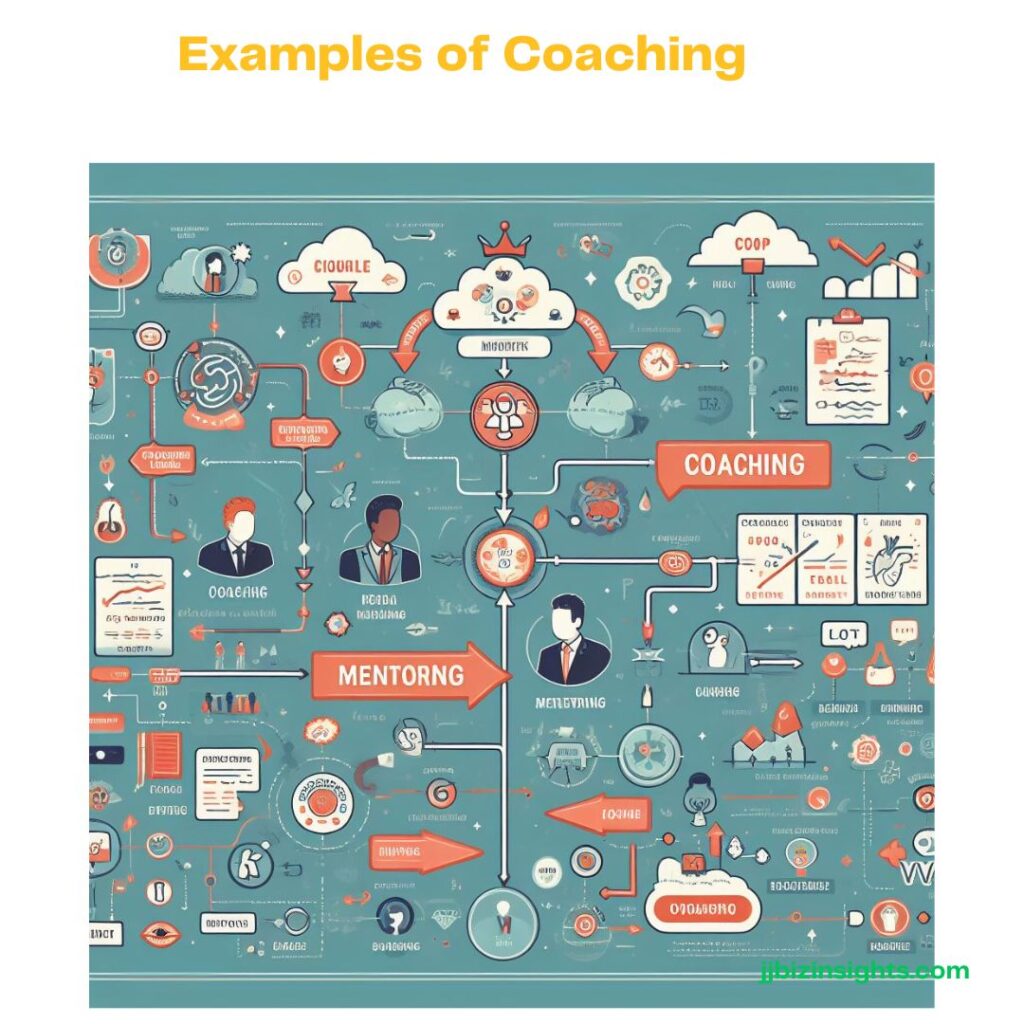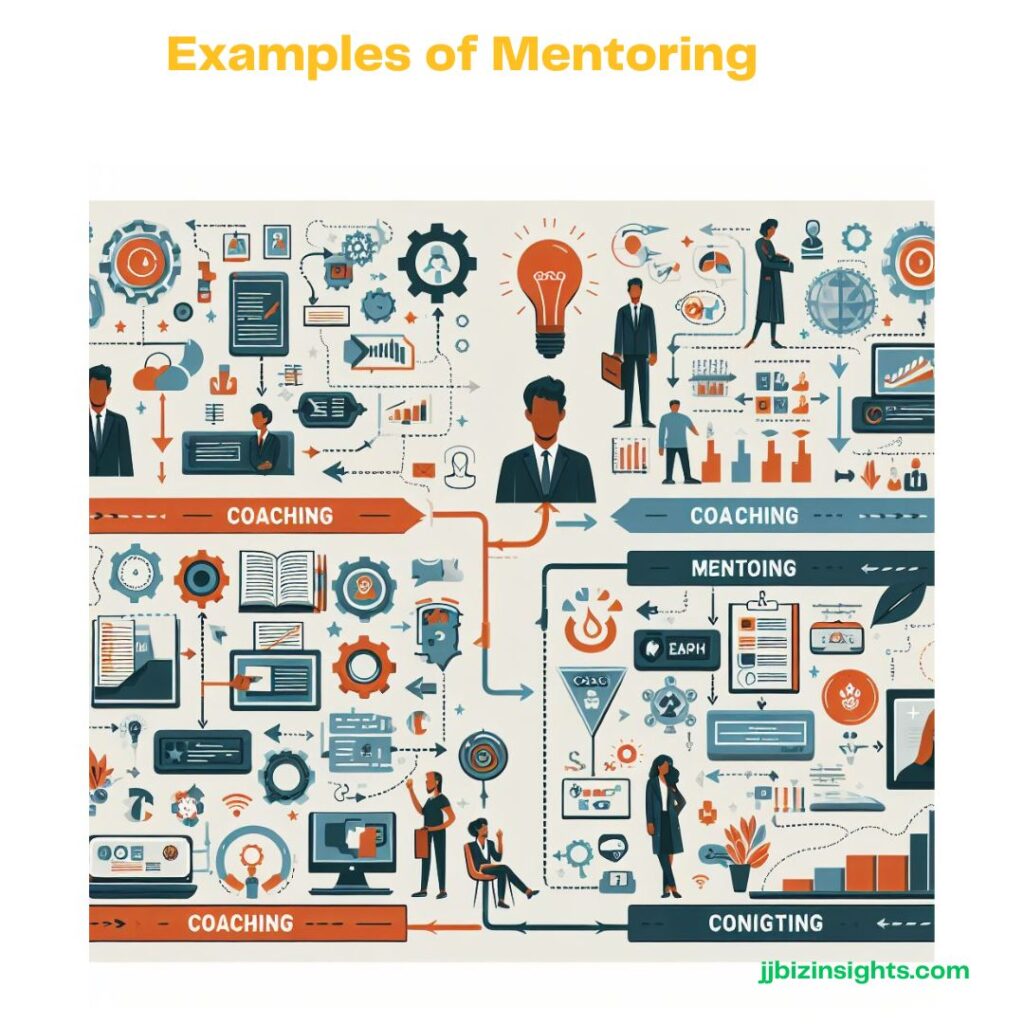
Coaching Vs Mentoring: The Differences You Need To Know
Coaching Vs Mentoring: Let’s delve into the fascinating world of coaching and mentoring, two distinct yet interconnected processes that play crucial roles in personal and professional development.
Coaching Vs Mentoring: Unraveling the Differences
1. Coaching: Inspiring Excellence
Coaching is like a compass guiding individuals toward their true potential. Here’s what you need to know:
- Definition: Coaching involves inspiring employees to solve their own problems and perform at their best. It’s about unlocking their potential and driving better results.
- Purpose: Coaches inspire action, encourage positive habits, and help individuals quit negative ones. They focus on understanding an employee’s behavior, skills, and motivations.
- Process: Effective coaching revolves around creating situations that motivate employees to excel. It’s not a one-time event; rather, it’s a continual process.
- Result: When coaching is successful, employees go above and beyond, leading to remarkable outcomes for the organization.
2. Mentoring: Sharing Wisdom
Mentoring, on the other hand, is about sharing personal experiences and guidance. Here’s the breakdown:
- Definition: Mentoring occurs when an employee seeks advice from someone with relevant knowledge. It’s a relationship built on trust and shared wisdom.
- Role: Mentors provide insights, share lessons learned, and offer guidance based on their own experiences.
- Approach: Unlike coaching, mentoring is initiated by the mentee. They seek advice on specific challenges or career development.
- Benefit: Mentoring helps individuals navigate their careers, learn from others’ successes and failures, and gain valuable insights.
Coaching Vs Mentoring: Why Both Matter
- Complementary Roles: While coaching focuses on performance improvement, mentoring provides a broader perspective. Together, they create a holistic approach to growth.
- Leadership Development: Organizations that invest in coaching and mentoring create future leaders. Coaching develops skills, while mentoring imparts wisdom.
- Employee Engagement: When employees receive personalized attention through coaching and mentoring, they feel valued and motivated.
Coaching Vs Mentoring: Conclusion
In summary, coaching inspires action, while mentoring imparts wisdom. Both are essential for creating leaders, achieving remarkable results, and fostering a culture of continuous learning.
Remember, coaching and mentoring are not interchangeable. They serve distinct purposes, and organizations that embrace both will thrive in today’s dynamic landscape.
Coaching Vs Mentoring: Unlock your potential through coaching, and gain wisdom from mentoring. Together, they’ll propel you toward excellence.
The Difference between Coaching and Mentoring

Let’s explore the distinct differences between coaching and mentoring:
- Coaching:
- Purpose: Coaching aims to inspire action, improve performance, and drive better results.
- Focus: It focuses on specific goals, skills, and tasks.
- Process: Coaches create situations that motivate individuals to solve their own problems.
- Frequency: Coaching is a continual process rather than a one-time event.
- Role: Coaches inspire positive habits and help individuals quit negative ones.
- Result: Effective coaching leads to employees going above and beyond, achieving remarkable outcomes for the organization.
- Mentoring:
- Purpose: Mentoring provides guidance, shares wisdom, and supports personal and professional growth.
- Focus: It has a broader perspective and is not limited to specific goals.
- Process: Mentors share their experiences, lessons learned, and insights.
- Relationship: It’s often a long-term relationship built on trust.
- Role: Mentors offer overall guidance, help navigate careers, and provide emotional support.
- Result: Successful mentoring enhances knowledge, confidence, and holistic development.
Coaching Vs Mentoring: In summary, coaching is about unlocking potential and improving performance, while mentoring imparts wisdom and supports growth. Both play crucial roles in employee development and organizational success.
Examples of Coaching

Let’s explore some examples of coaching in various contexts:
- Adapting Behavior:
- An employee may require coaching to adapt their behavior if it’s affecting their own work or that of others. For instance, an employee who consistently turns in work late can put a project behind schedule. A coach can help develop time management skills and improve the employee’s productivity.
- Setting and Achieving Goals:
- Coaches work with employees to define clear, long-term goals. For example, a coach can help an employee create specific objectives tailored to their skills and job role. These well-defined goals lead to greater success because they involve fewer people and are more attainable and measurable.
- Promoting Teamwork:
- Coaching encourages collaboration among team members. When employees work together effectively, it leads to higher efficiency and greater productivity. Coaches foster teamwork by facilitating communication and cooperation.
- Establishing Open Communication:
- Managers who coach their employees create an open channel of communication. This not only helps address work-related issues but also builds positive relationships among team members. A supportive work environment enhances job satisfaction and overall productivity.
- Teaching Problem-Solving Skills:
- Coaches aim to equip employees with problem-solving abilities. By introducing processes and strategies, coaches empower employees to find resolutions independently. Problem-solving skills are essential for overcoming challenges and improving performance.
- Increasing Employee Retention:
- Effective coaching contributes to higher retention rates. When employees receive better training and personalized guidance, their performance and job satisfaction improve. Positive relationships at work also play a significant role in employee happiness and retention.
Remember, coaching is an ongoing process that helps employees learn, adapt, and grow. It’s about unlocking potential, addressing weaknesses, and nurturing strengths to achieve remarkable results in the workplace.
Examples of Mentoring

Let’s explore some examples of mentoring in different contexts:
- Individual Mentoring:
- Informal Discussions: A junior employee seeks advice from a more experienced colleague. They discuss career goals, challenges, and personal development.
- Assigned “Buddies”: New hires are paired with seasoned employees during their initial weeks on the job. Buddies help them navigate company culture and processes.
- Group Mentoring:
- Employee Resource Groups (ERGs): Employees with common interests or backgrounds form groups. For instance:
- A group of South Asian origin employees in a US headquarters discuss adapting to American work styles.
- Female tech professionals share advice on advancing their careers in a male-dominated IT department.
- Employee Resource Groups (ERGs): Employees with common interests or backgrounds form groups. For instance:
- Career Mentoring:
- Sponsorship: A senior mentor actively advocates for a mentee’s career advancement. They recommend the mentee for leadership training, connect them with influential colleagues, and advocate for high-profile projects.
- Navigating Organizational Politics: Mentors guide mentees through office politics, helping them understand power dynamics and build strategic relationships.
- Psychosocial Mentoring:
- Emotional Support: Mentors provide a safe space for mentees to discuss personal challenges, stress, and work-life balance.
- Building Confidence: Mentors boost mentees’ self-esteem, helping them overcome imposter syndrome and develop resilience.
- Formal Mentoring Programs:
- Structured Pairings: Organizations create formal mentor-mentee relationships. These programs focus on skill development, career growth, and knowledge transfer.
- Reverse Mentoring: Younger employees mentor senior colleagues. For example, a tech-savvy junior employee teaches a senior executive about digital trends.
Remember, mentoring is a powerful tool for career development, knowledge sharing, and building meaningful connections in the workplace. Whether it’s one-on-one or group-based, effective mentoring benefits both mentors and mentees.
The Master Guide to Building a Thriving Mentoring Program: Unlock Your Workforce’s Potential





